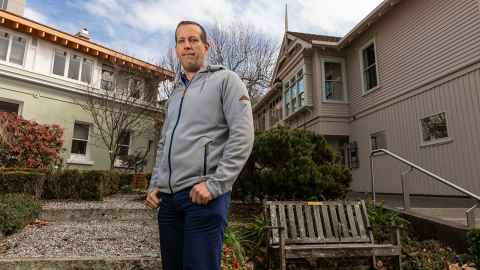Time to stop betting on the house
17 November 2020
Housing speculation in Auckland is endemic, with the market resembling a finance-fuelled casino with investors rushing to bet on tax-free capital gains. But there is a solution, according to research from the University of Auckland.

Betting on capital gains: housing speculation in Auckland, New Zealand, by Dr Michael Rehm and doctoral student Yang Yang from the Department of Property at the School of Business and Economics, reveals that applying a simple mathematical formula to house sales could activate the largely idle Income Tax Act’s intention test, currently available to government, to effectively control housing speculation.
The researchers examined rental property purchases from 2002 to 2016 within the Auckland region to examine the extent of housing speculation in Auckland, the second most unaffordable market in the world, and look at solutions.
Their research showed that nearly every rental property purchased between 2002 and 2016 exhibited some degree of speculation, with the vast majority being negatively geared and operating at a loss.
Rehm and Yang say that even though the government has ruled out introducing a capital gains tax, there are methods that could be used to activate the largely idle Income Tax Act’s intention test to curb speculation.
The Act’s intention test, which deals with the acquisition of land for the purpose of making profit through resale, is New Zealand’s cornerstone anti-speculation housing policy. These provisions serve as a pseudo capital gains tax by taxing profits realised by property speculators at their personal tax rate.
However, the IRD and political leaders have been largely unable or unwilling to impose the intention test as it relies on determining property investors’ subjective intentions at acquisition. In a joint report released by the New Zealand Treasury and the IRD, these government agencies conceded that property speculators are gaming the tax system.
Nearly every rental property purchased between 2002 and 2016 exhibited some degree of speculation, with the vast majority being negatively geared and operating at a loss.
Rehm and Yang say by applying a simple cash flow model that emulates the before-tax investment calculations used during purchasers’ due diligence, they could determine if a house purchase involved speculation on capital gains or not, and estimate the degree of speculation involved in the transaction.
The researchers say that despite political leaders decrying the “speculation-driven house bubble in Auckland being a social and economic disaster,” the government’s main anti-speculation tool – the Income Tax Act’s intention test – sits idle and inoperable.
By holstering this key policy tool, politicians foster housing speculation and use residential property investment to buttress New Zealand’s asset-based welfare system.
Rehm and Yang are calling on the government to employ their method to make operable the intention test operable so that IRD can enforced it.
This would not only temper New Zealand's overheated housing markets but it would generate considerable revenue that can be used to support first home buyers or pay down the economic bill run up by the Covid-19 pandemic.
Media enquiries
Lisa Finucane | Media & Communications Manager
Mob: 021 677 216
Email: l.finucane@auckland.ac.nz